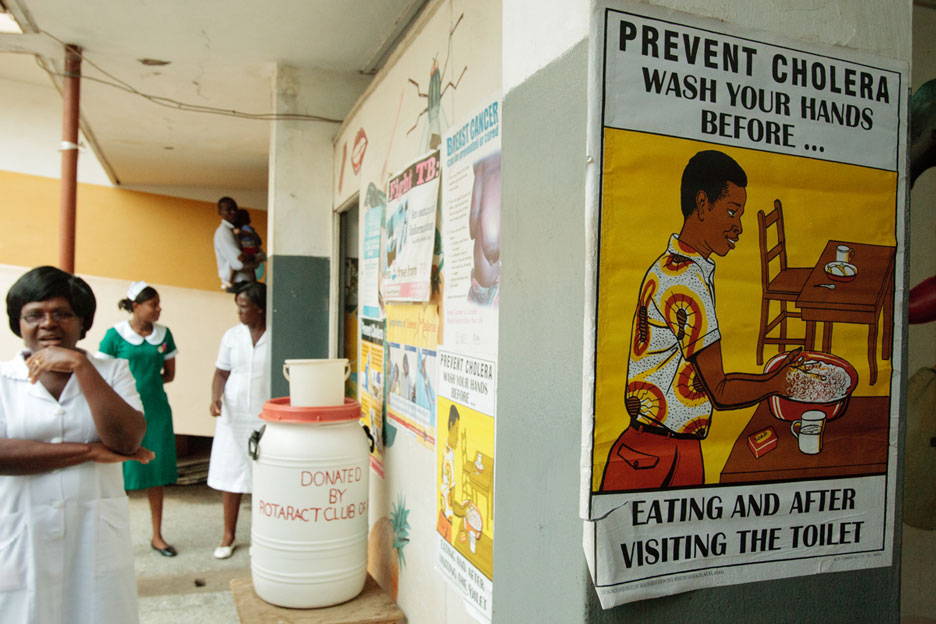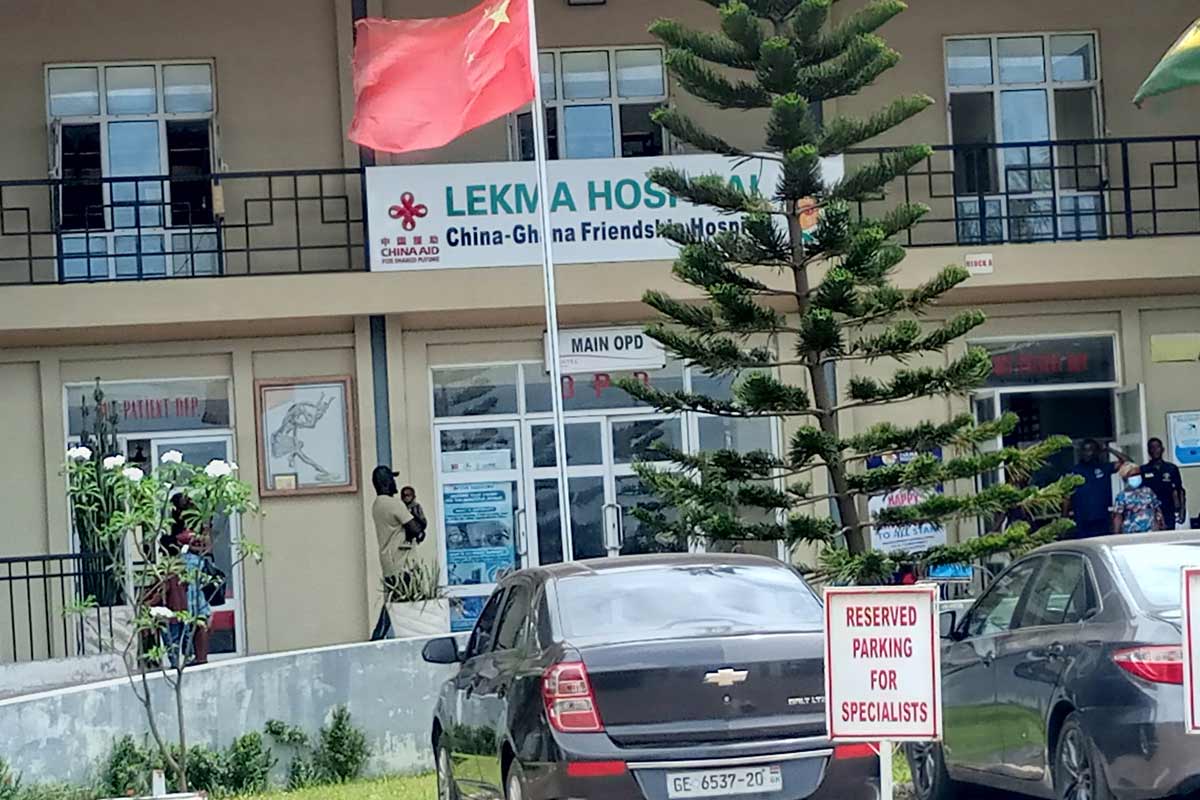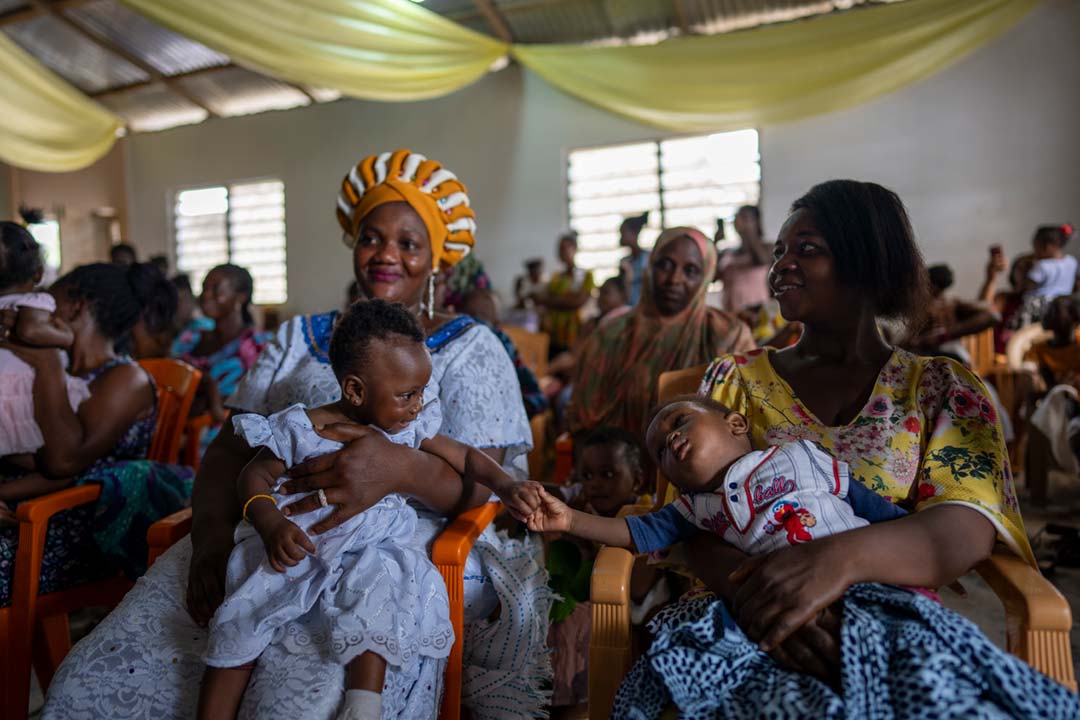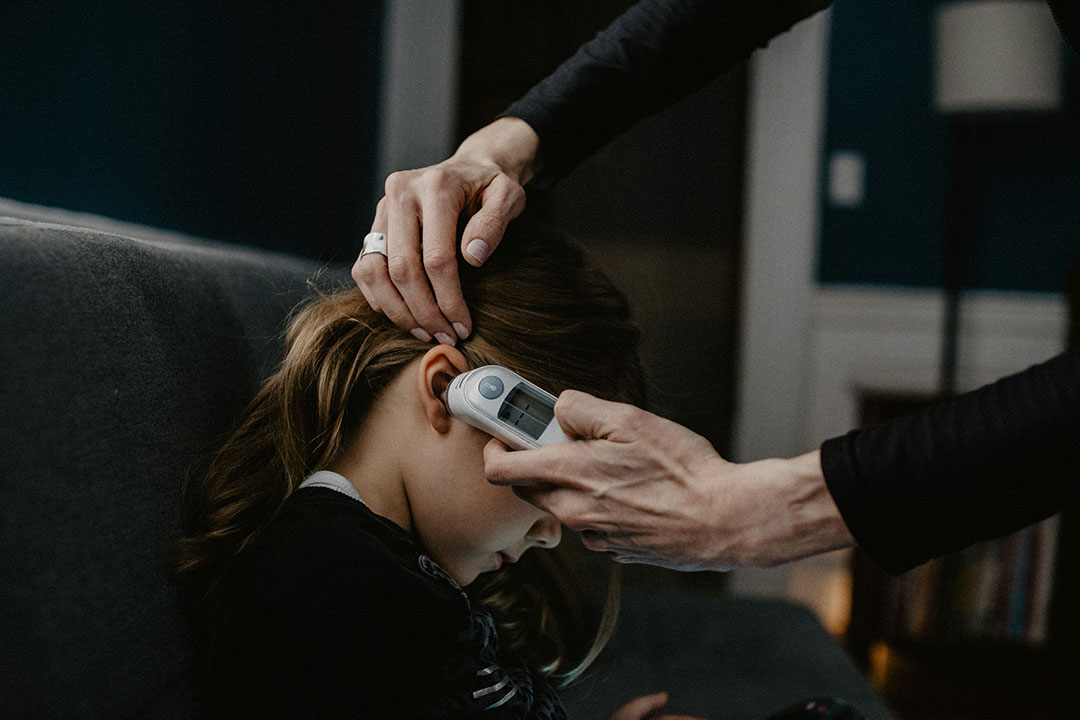In Ghana, 25 years of Gavi-supported immunisation inspires national resolve to keep going – even alone
Gavi has been working with Ghana for a quarter of century to expand access to life-saving vaccines. The impact has been profound.
- 11 July 2025
- 4 min read
- by Francis Kokutse , Gavi Staff
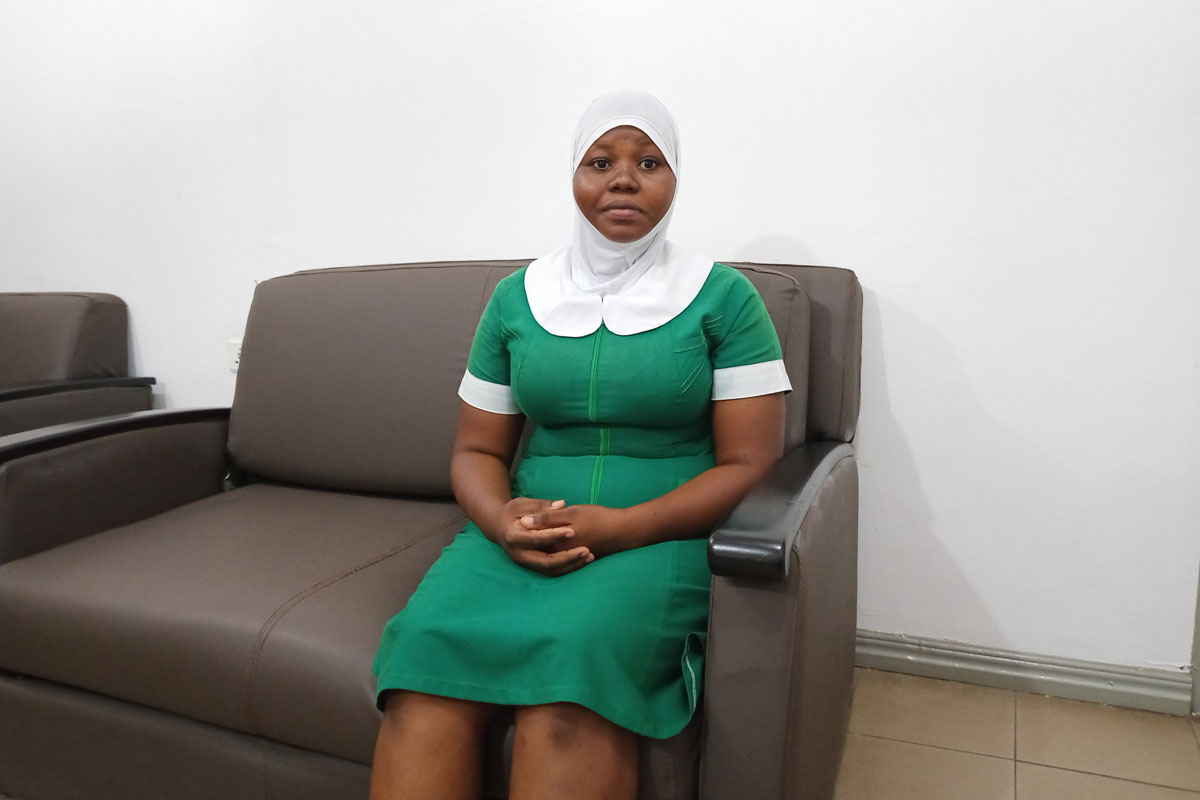
“I wear the scar of my BCG vaccine with pride,” says Rahinatu Abdul Fatau, a 25-year-old nurse at the Mamprobi Hospital in Accra. Fatau’s parents have told her she received not just that anti-tuberculosis inoculation, but the full complement of childhood jabs in her earliest years, making her one of the first children in Ghana to have been protected by Gavi-funded vaccines.
Now a health professional, Fatau understands better than most what that might have saved her from. “Vaccines are important because they contribute to improve our health and immunity,” she says. “Vaccination protects the vulnerable population, like newborns, pregnant women, as well as helps to prevent the spread of diseases and reduce the impact of the diseases on individuals. For this reason, it is important that it is available for free.”
A coming-of-age story
About a quarter of a century ago, at around the time that both nurse Fatau and Gavi, the Vaccine Alliance, were born, Ghana’s Gavi-supported portfolio of publicly-available vaccines protected against six diseases. That list has grown to 11, which will soon become 12 after the cancer-blocking human papillomavirus (HPV) vaccine rolls out later this summer.
Although Gavi’s support continues to be crucial to the availability of those vaccines at no charge to families, Ghana is looking forward to funding its immunisation programme solo.
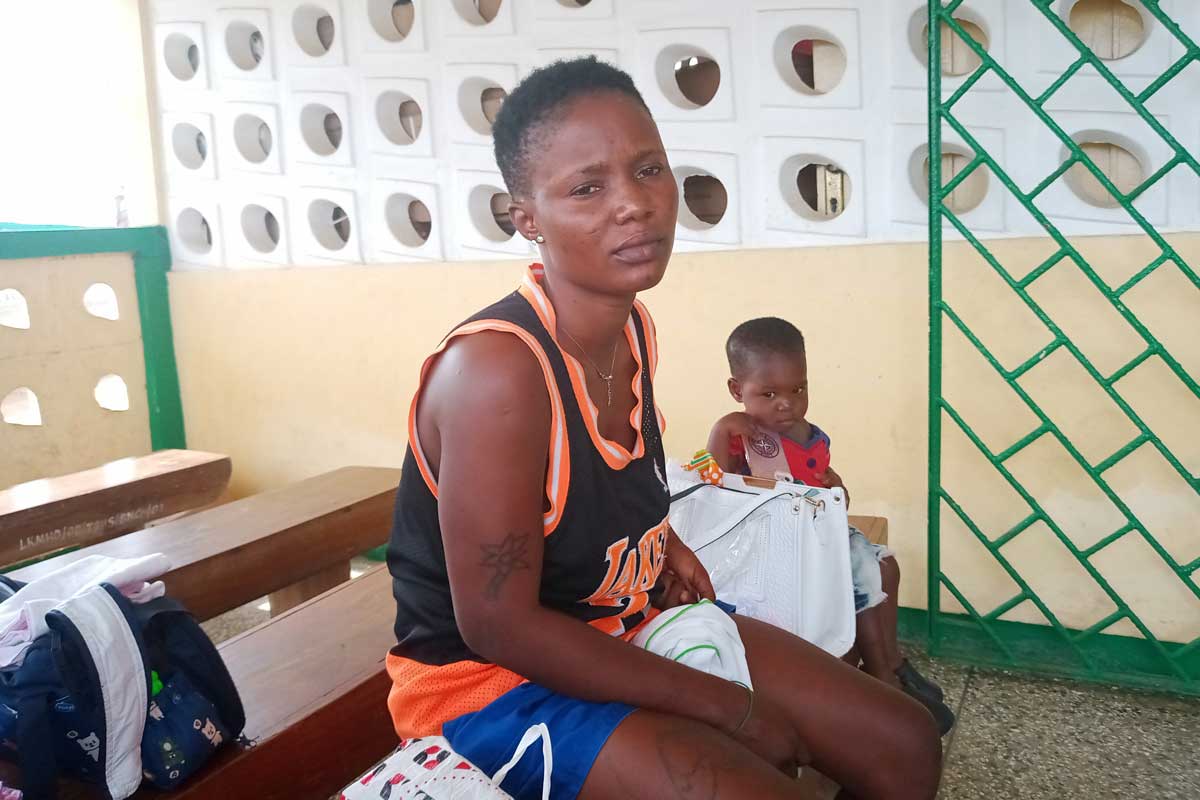
“We are hoping that we’ll fast-track our weaning off Gavi by 2030,” said Ghanaian President John Dramani Mahama in a moving address at Gavi’s recent Global Summit in Brussels. The summit saw a record number of pledges to back the Vaccine Alliance’s next five years of work. “It’s my expectation that we’ll work hard to be like Indonesia, and in future become a donor country to Gavi.”
Ghana’s commitment to vaccination is both laudable and logical. The 2022 Ghana Demographic and Health Survey found the national under-five mortality rate had dropped 33.3% from 2014 to 2022; the country’s infant mortality rate, covering children who die before their first birthdays, declined 31.7% during the same period. Last year, the Ghana Statistical Service (GSS) said it had seen a continued decline in childhood mortality rates, and attributed it in significant part to immunisation.
Those statistics are impressive – and yet, for many among Ghana’s older generations, including the President, the impact of immunisation feels a little more intimate.
“For me the issue of vaccines is deeply personal,” said Mahama. “And that is because when I was growing up, one of my younger brothers was affected by polio – he was crippled. He lived with the stigma of his disability for many years, and eventually he was driven into depression, and became an alcoholic. He died from alcohol poisoning. I’m having to look after the two children he left behind – and so I understand what life-saving vaccines are.”
“We grew up in a period where access to vaccines was close to zero in our part of Africa,” he added. “Today Gavi has changed all that, giving hope to millions of children.
“Across the world, many children are growing up to become responsible citizens of their communities, because their lives were saved by Gavi’s immunisation.”
Have you read?
Vaccination causes adults
One of those citizens – whether the President knows it or not – is Fatau: little known, but highly valued where she’s known.
Like President Mahama, she grew up with a sick sibling – a sister, whose treatment, she says, left room for improvement. In her case, too, the experience inspired resolution: “I thought I could have done better for her,” she said.
It’s an irony of vaccination that its story seems easier to tell inverted: in terms of missed opportunities to head off disease, in terms of grief and lost lives. In fact, the myriad success stories of immunisation speak with a quiet, quotidian voice; they’re barely stories at all. The legacy of vaccination really exists in lives like Fatau’s – the ones that are, most simply, allowed to continue.
On a recent weekday at Teshie Community Clinic in Accra, two mothers, Alberta Adjetey and Emelia Akita, brought their children in for vaccination. Akita, born at home to a poor family with little connection to the healthcare system, had resolved her own child would grow up with a future better guaranteed than her own had been. “I would like to vaccinate my child because it will protect her,” she said.
Adjetey, meanwhile, struck a more ambivalent note. “I am aware that vaccination will protect my child from contracting any of the childhood diseases,” she said. Then she added, “But I am not sure if I would be regular at the clinic if I had to pay for it.”
